World Geography And Politics Daily News | 29 Jun 2023

Views (133)

Analysis-Where are Russia's top generals? Rumours swirl after mercenary mutiny
Russia's most senior generals have dropped out of public view following a failed mercenary mutiny aimed at toppling the top brass, amid a drive by President Vladimir Putin to reassert his authority and unconfirmed reports of at least one arrest. Valery Gerasimov, Russia's top general, has not appeared in public or on state TV since the aborted mutiny on Saturday when mercenary chief Yevgeny Prigozhin demanded Gerasimov be handed over. Gerasimov, 67, is the commander of Russia's war in Ukraine, a
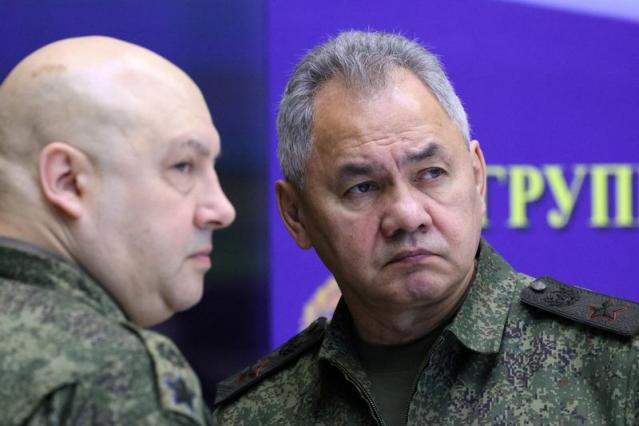
By Andrew Osborn
LONDON (Reuters) - Russia's most senior generals have dropped out of public view following a failed mercenary mutiny aimed at toppling the top brass, amid a drive by President Vladimir Putin to reassert his authority and unconfirmed reports of at least one arrest.
Valery Gerasimov, Russia's top general, has not appeared in public or on state TV since the aborted mutiny on Saturday when mercenary chief Yevgeny Prigozhin demanded Gerasimov be handed over. He has not been mentioned in a defence ministry press release since June 9 either.
Gerasimov, 67, is the commander of Russia's war in Ukraine, and the holder of one of Russia's three "nuclear briefcases," according to some Western military analysts.
Absent from view too is General Sergei Surovikin, nicknamed "General Armageddon" by the Russian press for his aggressive tactics in the Syrian conflict, who is deputy commander of Russian forces in Ukraine.
A New York Times report, based on a U.S. intelligence briefing, said on Tuesday he had advance knowledge of the mutiny and that Russian authorities were checking if he was complicit.
The Kremlin on Wednesday played down the report, saying that there was and would be a lot of speculation and gossip.
The Russian-language version of the Moscow Times and a military blogger reported Surovikin's arrest, while some other military correspondents who command large followings in Russia said he and other senior officers were being questioned about their possible role in the mutiny.
Reuters could not determine whether Surovikin had been arrested.
Rybar, an influential channel on the Telegram messaging application run by a former Russian defence ministry press officer, said a purge was underway.
He said the authorities were trying to weed out military personnel deemed to have shown "a lack of decisiveness" in putting down the mutiny amid some reports that parts of the armed forces appear to have done little to stop Wagner fighters in the initial stage of the rebellion.
"The armed insurgency by the Wagner private military company has become a pretext for a massive purge in the ranks of the Russian Armed Forces," said Rybar.
Such a move, if confirmed, could alter the way Russia wages its war in Ukraine — which it calls a "special military operation" — and cause turmoil in the ranks at a time when Moscow is trying to stymie a Ukrainian counteroffensive.
It could also cement or elevate the positions of other senior military and security figures regarded as loyal.
There was no official comment on what was going on from the defence ministry.
WINNERS AND LOSERS
Some Russian and Western military and political analysts believe Defence Minister Sergei Shoigu, a veteran Putin ally who Prigozhin wanted to bring down with Gerasimov because of his alleged incompetence, may actually now be safer in his job.
"I think he (Prigozhin) actually expected something would be done about Shoigu and Gerasimov, that Putin would rule in his favour," Michael Kofman, a Russian military specialist at the Carnegie Endowment think tank, wrote on Twitter.
"Instead, his mutiny may have ensured their continued tenure, despite being universally recognised as incompetent, and widely detested in the Russian Federation's armed forces."
Viktor Zolotov, head of the National Guard who used to be Putin's bodyguard, appears to be another beneficiary after appearing in public to say his men were ready to "stand to the death" to defend Moscow from Wagner.
He has spoken of the possibility of getting heavy weaponry and tanks for his forces in the wake of the mutiny.
Gerasimov was conspicuous by his absence when Putin on Tuesday thanked the army for averting a civil war, unlike Shoigu who has made several public appearances since.
Surovikin, Gerasimov's deputy, was last seen on Saturday when he appeared in a video appealing to Prigozhin to halt his mutiny. He looked exhausted and it was unclear if he was speaking under duress.
There were unconfirmed Russian media and blogger reports on Wednesday evening that Surovikin was being held in Moscow's Lefortovo detention facility after being arrested.
Alexei Venediktov, a well-connected journalist, said - without citing his sources - that Surovikin had not been in touch with his family since Saturday and that his bodyguards had gone silent too.
Prigozhin, who had spent months vilifying Shoigu and Gerasimov for their alleged incompetence in the Ukraine war, had frequently praised Surovikin who is widely respected in the army for his experience in Chechnya and Syria.
Surovikin, who did a stint as overall commander of the Ukraine war before Gerasimov was appointed to take over, is regarded by Western military analysts and by parts of the Ukrainian military as an effective operator.
He had been spoken of by Russian war correspondents as a potential future defence minister.
(Reporting by Andrew Osborn; Editing by Mike Collett-White and Lisa Shumaker)
Biden says Putin was weakened by Prigozhin's revolt
President Joe Biden said Wednesday that Russia's Vladimir Putin has been weakened by Wagner mercenary leader Prigozhin's rebellion against the Russian military.
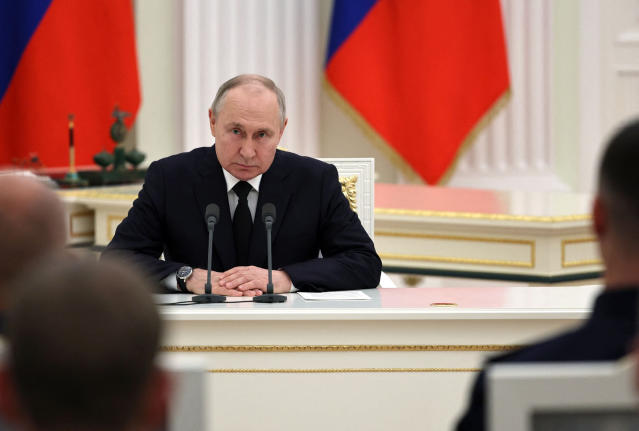
Speaking to reporters outside the White House, Biden was asked by NBC News whether Putin was weakened by the recent situation. "Yes," he said, adding that Putin has "become a pariah around the world."
Asked whether Prigozhin had planned to capture Russian military leaders, Biden said: "That remains to be seen."
"They agreed with me that we had to make sure we gave Putin no excuse — let me emphasize — we gave Putin no excuse to blame this on the West or to blame this on NATO," Biden said.
He added: "We’re going to keep assessing the fallout of this weekend’s events and the implications for Russia and Ukraine, but it’s still too early to reach a definitive conclusion about where this is going. The ultimate outcome of all this remains to be seen."
Beijing rebukes US presidential hopeful Haley over China proposal
WASHINGTON (Reuters) -China rebuked U.S. presidential contender Nikki Haley over her plan to scale back links with the country, echoing her remarks by saying those who blamed Beijing for problems would end up on the "ash heap of history." Haley, a U.N. ambassador during the Trump administration, staked out one of the most hawkish positions on China in the 2024 Republican presidential field on Tuesday, calling for Washington to drastically limit ties with Beijing to address a dramatic rise in U.S
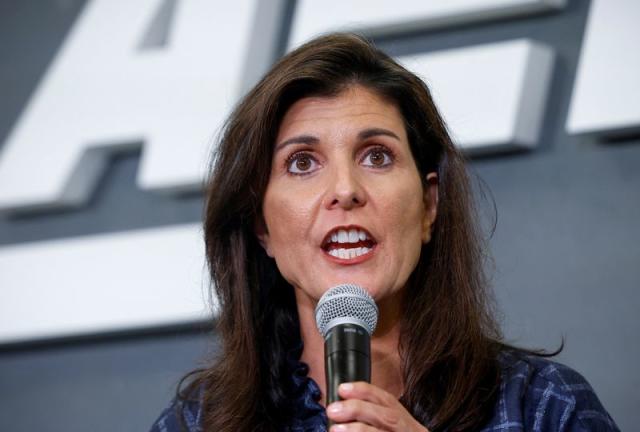
WASHINGTON (Reuters) -China rebuked U.S. presidential contender Nikki Haley over her plan to scale back links with the country, echoing her remarks by saying those who blamed Beijing for problems would end up on the "ash heap of history."
Haley, a U.N. ambassador during the Trump administration, staked out one of the most hawkish positions on China in the 2024 Republican presidential field on Tuesday, calling for Washington to drastically limit ties with Beijing to address a dramatic rise in U.S. overdose deaths attributable to fentanyl.
Haley said the U.S. should revoke China's permanent normal trade relations status until it helped stem the flow of chemicals used to create fentanyl. She also pledged to push American companies to leave China, saying if the U.S. rallied, China's ruling Communist Party would "end up on the ash heap of history."
China called such remarks irresponsible.
"Pushing American companies to leave China runs counter to economic laws, and will ultimately harm everyone's interests," the spokesman for China's embassy in Washington, Liu Pengyu, said in a statement to Reuters late on Tuesday.
"Only those who draw attention by smearing and blame-shifting in the election campaign will end up on the ash heap of history," Liu said.
U.S. officials say China's government has not been cooperative on the fentanyl issue, or on money laundering related to the drug's trafficking, criticism that Beijing rejects.
Beijing has countered that Washington should stop using the fentanyl crisis as a pretext to sanction Chinese companies, and Chinese state media outlets have repeatedly said addiction and demand for the drug are U.S. domestic problems.
Haley is well behind in presidential primary opinion surveys, with just 3% of Republicans planning to vote for her, according to a Reuters/Ipsos poll released earlier in June.
She has sought to use foreign policy as a way to differentiate herself in a crowded Republican field, and her hardline stance on China could push her rivals to adopt harsher positions as well.
(Reporting by Michael Martina; editing by Jonathan Oatis)
Hajj: Price rises making pilgrimage increasingly unaffordable
The pilgrimage to Mecca is becoming increasingly unaffordable for many Muslims across the world.

Some 1.8 million Muslims from across the world made it to Mount Arafat in Saudi Arabia on Tuesday to mark the most important day of the Hajj. But due to global price rises, the pilgrimage is becoming increasingly unaffordable.
"The number of bookings has significantly dropped this year. It's too costly for many people," says an employee at a private Egyptian tour operator in charge of organising Hajj trips, who wanted to remain anonymous out of fear of a backlash over their criticism of their country's economic situation.
In Egypt, the most populous Arab country, the cheapest government-sponsored pilgrimage currently costs around $6,000 (£4,720) - double what it was last year.
The price hike has been fuelled by the sharp devaluation of the Egyptian pound, which has lost more than 50% of its value against the US dollar since March 2022. As a result, the cost of living has also skyrocketed, with annual core inflation hitting 40% in May.
About 30% of the population was living below the government's poverty line before the Covid-19 pandemic, and the World Bank says the figure is likely to have risen since then.
Farida, a retired Egyptian civil servant, saved to go on the Hajj for five years.
"All my savings are not enough to pay for the trip. When I saw the price list, I was shocked," she says.
Farida - not her real name - is a widow and mother of five. She also asked not to be identified because she did not want to publicly criticise Egyptian authorities over the rising cost of living.
Farida says that performing the Hajj is "my dream", adding: "Hajj cleanses the soul."
She says her children are all married, so "social and financial responsibilities have been lifted off my shoulders". "It is about time to go to Hajj."
Farida has already been to Mecca four times before to perform the lesser Umrah pilgrimage, which includes some of the rituals of the Hajj and can be undertaken at any time of the year.
This time, she used a loophole in the system so that she could perform the Hajj.
"Instead of the Hajj visa, I got a three-month-tourist visa and arrived in Mecca a month before the Hajj season kicks off," she tells me from Saudi Arabia while waiting to start the pilgrimage. "This is the only option I have got."
Farida's whole trip to Mecca works out 80% cheaper than the government-sponsored Hajj package.
Hajj is one of the five pillars of Islam. Muslims are required to make the journey to Mecca at least once in their lifetime, if they are physically and financially capable of doing so.
The pilgrimage starts on the eighth day of the Islamic lunar month of Dhul Hijjah, which this year corresponded to 26 June in the Gregorian calendar, and lasts five to six days.
The Hajj usually attracts between 1.5 million and 2 million pilgrims, but this is the first time since the pandemic that Saudi authorities have allowed it to return to full capacity.
Saudi Arabia allocates each country an annual quota based on the number of Muslims living there.
The biggest goes to Indonesia - the world's largest Muslim-majority nation, with a population of 270 million. It was given 221,000 places this year.
Indonesian authorities decided this year to cut the subsidy for the pilgrimage to 50% from 60%, meaning that each Indonesian pilgrim had to pay $3,320. In 2022, the package cost $2,660.
While the financial cost can prove an obstacle for many Muslims around the world, for those in Yemen - Saudi Arabia's war-torn and impoverished southern neighbour - the situation is far more complicated.
The country has been devastated by a conflict that escalated in 2015, when a Saudi-led military coalition intervened after the Iran-backed rebel Houthi movement seized control of large parts of the country. The fighting has reportedly killed more than 150,000 people and caused one of the world's biggest humanitarian disasters.
This month, Yemeni pilgrims flew directly from the rebel-held capital, Sanaa, to Saudi Arabia for the Hajj - the first such commercial flights in about seven years.
Those who travelled had to pay about $3,000 - a considerable sum in a country where more than 21 million out of a population of 30 million people need some kind of humanitarian assistance and 17 million do not know where their next meal will come from.
"In 2016, I went to Hajj for less than half of this price. It's too expensive for me now," one Yemeni journalist says.
Blinken says no nuclear deal on table with Iran
US Secretary of State Antony Blinken said Wednesday that no new nuclear agreement was on the table with Iran, after quiet new diplomacy between the adversaries."We'll see by their actions," Blinken said of the future relationship, calling on Iran to choose to "not take actions that further escalate the tensions" with the United States and in the Middle East.
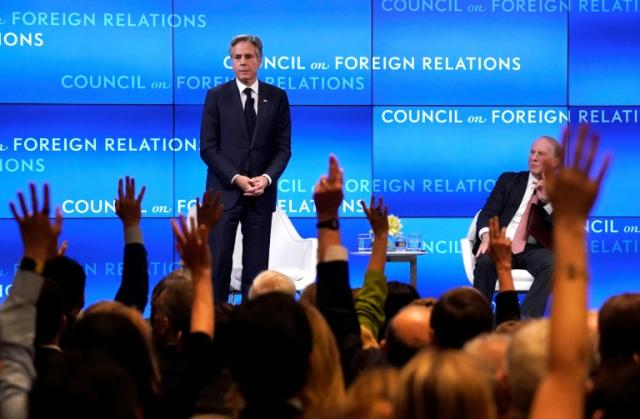
US Secretary of State Antony Blinken said Wednesday that no new nuclear agreement was on the table with Iran, after quiet new diplomacy between the adversaries.
"There is no agreement in the offing, even as we continue to be willing to explore diplomatic paths," Blinken said at the Council on Foreign Relations in New York.
"We'll see by their actions," Blinken said of the future relationship, calling on Iran to choose to "not take actions that further escalate the tensions" with the United States and in the Middle East.
President Joe Biden took office with hopes of returning to a 2015 nuclear accord with Iran scrapped by his predecessor Donald Trump. But EU-mediated talks collapsed and mass protests in Iran made Washington increasingly hesitant to strike a deal with the clerical state.
Diplomats, however, say indirect talks have quietly resumed in recent months with Oman as an intermediary, with the focus largely on the status of US prisoners in Iran.
The talks on restoring the 2015 nuclear accord broke down over disputes on the extent of relief from sweeping US sanctions imposed by Trump and over when Iran would return to compliance by pulling back from countermeasures taken in response to the US withdrawal from the deal.
Blinken said the Biden administration had made a "good-faith effort" with European powers as well as rivals China and Russia to return and that for a time "that looked possible."
"Iran either couldn't or wouldn't do what was necessary to get back into compliance," he said.
Elsewhere in the region, Blinken has served as a go-between for Israel and Saudi Arabia -- which both have uneasy relations with the United States -- as they explore establishing relations.
"Both Saudi Arabia and Israel of course are interested in the prospect of normalization," said Blinken, who traveled to Saudi Arabia earlier in June.
"It is incredibly challenging, hard, not something that can happen overnight, but it's also a real prospect and one that we're working on," he said.
Israel in 2020 normalized relations with three Arab states -- the United Arab Emirates, Bahrain and Morocco -- in what both Trump and Prime Minister Benjamin Netanyahu see as a crowning achievement.
For Netanyahu, Saudi recognition would be an ultimate coup due to the country's size and influence in the Arab world and its status as the guardian of Islam's holiest sites. The Saudis have called for progress on the rights of the Palestinians.
Blinken on Tuesday spoke to Israeli Foreign Minister Eli Cohen to make a new call for de-escalation in the West Bank and to voice concern over recent unrest, which has included violence against Palestinian-Americans.
"We've told our friends and allies in Israel that if there's a fire burning in their backyard, it's going to be a lot tougher if not impossible to actually both deepen the existing agreements, as well as to expand them to include potentially Saudi Arabia," Blinken said.
sct/mlm
Ukraine: The Latest - What Prigozhin's exile in Belarus means for Putin
Today on Ukraine: The Latest, we bring you the latest updates from the front line, including a dispatch from our Foreign Correspondent Colin Freeman in Kramatorsk following yesterday’s deadly strike. We also discuss the future of Yevgeny Prigozhin and Vladimir Putin after the leader of the Wagner group arrives in Belarus.
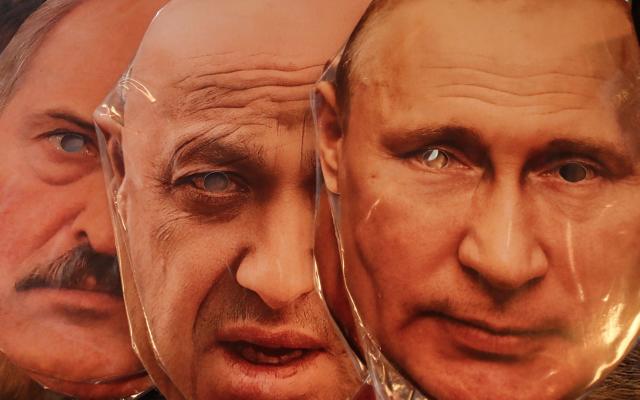
Today on Ukraine: The Latest, we bring you the latest updates from the front line, including a dispatch from our Foreign Correspondent Colin Freeman in Kramatorsk following yesterday’s deadly strike. We also discuss the future of Yevgeny Prigozhin and Vladimir Putin after the leader of the Wagner group arrives in Belarus.
Assistant Comment Editor Francis Dearnley reflects on the significance of Prigozhin’s arrival in Belarus.
For me, the most interesting question regarding Lukashenko’s involvement in the fallout from the coup – and more generally in his relationship with Putin in recent months – is whether he has been weakened or strengthened by this, and/or whether his decisions emanate from a position of strategic independence or dependency.
Lukashenko must have known that the fall of Putin would prove fatal to his own regime in Minsk. So by aiding Putin, he has dodged a bullet. The price for averting that – hosting Prigozhin in exile – brings hazards of its own. As Roland has written about for the paper, expanding on his thoughts from yesterday’s episode, Lukashenko and his eldest son, Nikolai, command the loyalty of Belarus’s security services largely because of their monopoly on distributing wealth and other privileges. A rogue billionaire may well disrupt that.
Associate Editor (Defence) Dominic Nicholls notes Putin’s reaction to the challenge to his authority:
The strike yesterday on Kramatorsk, especially the civilian toll, the deliberate aiming at the civilian areas etc.: it gets us talking talking about something other than Putin’s vulnerability. He can also use that internally to show what a big, strong man he is.
Francis also comments on the prospect of regime change in Russia, and whether it would be preferable for Putin to still be in the post of President after the war:
I tend to think that it’s more dangerous to have a competent state actor perpetrating the kind of crimes we’ve seen in Ukraine than an incompetent one. Putin is not a genius, but I do think that he’s a very effective operator. He knows the West’s weaknesses. He’s studied us for decades when he was operating within the Russian state, both as a KGB officer and afterwards.
He has clearly outmaneuvered the West for many, many years, and, as a consequence of that, I don’t think that it’s necessarily a good thing to see the political survival of somebody who has the intellectual means as well as the immoral capacity to undermine the West and invade sovereign nations. I tend to think that it is better to sow discord and to try and bring about change because the chances are you will not have somebody who is as competent as he is.
With over 30 million downloads, our Ukraine: The Latest podcast is your go-to source for all the latest analysis, live reaction and correspondents reporting on the ground. We have been broadcasting ever since the full-scale invasion began.
Ukraine: The Latest’s regular contributors are:
David Knowles
David is Head of Social Media at the Telegraph where he has worked for almost two years. Previously he worked for the World Economic Forum in Geneva. He speaks French.
Dominic Nicholls
Dom is Associate Editor (Defence) at the Telegraph having joined in 2018. He previously served for 23 years in the British Army, in tank and helicopter units. He had operational deployments in Iraq, Afghanistan and Northern Ireland.
Francis Dearnley
Francis is Assistant Comment Editor at the Telegraph. Prior to working as a journalist, he was Chief of Staff to the Chair of the Prime Minister’s Policy Board at the Houses of Parliament in London. He studied History at Cambridge University and on the podcast explores how the past shines a light on the latest diplomatic, political, and strategic developments.
They are also regularly joined by the Telegraph’s foreign correspondents around the world, including Joe Barnes (Brussels), Sophia Yan (China), Nataliya Vasilyeva (Russia), Roland Oliphant (Senior Reporter) and Colin Freeman (Reporter). In London, Venetia Rainey (Weekend Foreign Editor), Katie O’Neill (Assistant Foreign Editor), and Verity Bowman (News Reporter) also frequently appear to offer updates.
0 Likes
